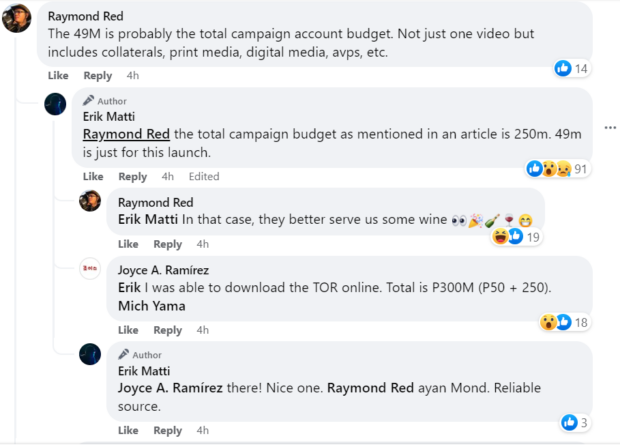Erik Matti slams ‘lazy news gathering’ on DOT’s ‘Love The Philippines’ ad campaign fiasco

Director Erik Matti
Veteran filmmaker Erik Matti slammed what he termed as “lazy news gathering” on the part of journalists seeking to uncover the “real story” behind the “Love The Philippines” campaign video of the Department of Tourism (DOT).
On Monday, the DOT announced that it has terminated its contract with DDB Philippines, the department’s partner advertising firm that used stock footage from other countries in the tourism promotional video for the Philippines, which drew criticism for using visuals from other countries like Thailand, Indonesia, and the UAE.
DDB Philippines apologized on Sunday following the controversy.
But Matti seemed to think that these recent developments do not scratch the surface.
Airing his opinions on Facebook, the “On the Job” director lamented that the media seemed to be only relying on mere press statements, which he said do not fully reveal the truth about the multi-million peso ad campaign.

The Department of Tourism’s new campaign slogan and logo
“The news about this issue is lazy news gathering. Everyone is relying on the press statements of the different parties involved in this. If reporters and journalists go a bit more in depth on research and interviews, the real story will come out. Talk to the agency, talk to the production people, talk to the prod house involved,” he said.
Matti likewise posed some questions that he said should be answered after the promotional video was confirmed to have used stock footage of visuals from other countries. In particular, he asked that the production house that supposedly took charge of the stock footage used be identified.
“Was there really a shoot involved in the launch? As an initial launch why didnt DOT use the thousands of stock footage that the previous DOT have gathered over the years in their campaign for It’s More Fun? Definitely those footages were verifiably shot in the Philippines. Was there a switch in the prod house involved? Why is it 49million and not 50million (pesos)? [emoji] If it’s just a mood video, what’s the P49m budget for? Who eventually finished the edit? And who approved it? As per industry practice, the stock footage purchases are care of the prod house. So where is the prod house in all this? Who is the prod house?” he asked.
“If all the right questions will be asked, the real story will come out. I bet the story is about as old as it is cliche. It’s probably about money. Predictable,” he further said.
In the comments section, “Kamera Obskura” director Raymond Red said that the P49-million budget is “probably the total campaign account budget” and is not exclusive to the promotional video, adding that it might also cover “collaterals, print media, digital media, avps, etc.”
To this, Matti responded that according to an article, “the total campaign budget… is 250m [and] 49m is just for this launch.”
Joyce Ramírez, founder of PR agency PublicityAsia — which incidentally was involved in promoting actress Vanessa Hudgen’s travel documentary — also commented that the total budget is P300 million “(P50[M] + 250[M])” based on the “TOR” (or terms of reference) of the project bidding that she was able to download online.

Screenshot from Erik Matti’s Facebook profile
The DOT has said that it has not paid the DDB for the promotion video, but that it “will exercise its right to forfeit performance security as a result of default in obligations under the contract and review standards of performance (or lack thereof) vis-a-vis any claims for payment or any other engagement.”
It further said that it is reserving the right to take action against “acts deemed inimical to the interest of Philippine tourism.” EDV